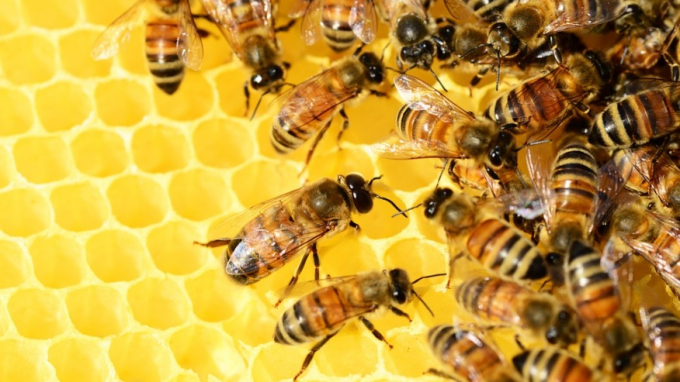November 28, 2025 | 01:00 GMT +7
November 28, 2025 | 01:00 GMT +7
Hotline: 0913.378.918
November 28, 2025 | 01:00 GMT +7
Hotline: 0913.378.918

The reclassified products includes neonicotinoid (neonic) insecticides imidacloprid, thiamethoxam, and acetamiprid. The DEC said these products have the potential to harm bees and other beneficial insects.
The “restricted use” label limits these pesticides for use by trained applicators in specific situations.
The reclassified products includes neonicotinoid (neonic) insecticides imidacloprid, thiamethoxam, and acetamiprid. The DEC said these products have the potential to harm bees and other beneficial insects.
“Protecting pollinators is a top priority, and today’s action to restrict the use of these neonicotinoid pesticides is another important step in our ongoing efforts to safeguard these species that are crucial to New York’s environment, agricultural economy, and biodiversity,” said DEC Commissioner Basil Seggos. “Reclassifying these pesticides will ensure they are only used in targeted instances by qualified professional applicators, and only available for sale to certified applicators which will further protect public health and the environment.”
The reclassification will take effect on January 1, 2023. This allows time for registrants, distributors and retailers to prepare for the change. Products labeled for “limited directed application” to tree trunks and the ground at the base of trees, shrubs, and plants are not included in the reclassification.
The DEC said pesticides often stress pollinators and neonicotinoids have been identified as a group of pesticides that are highly toxic to them. While commercial application of all pesticides is reported to DEC as part of the state’s regulatory oversight, residential applications and sales of general use products to consumers are not. The reclassification allows the DEC to collect sales and use data to estimate and monitor the quantities and locations where these products are used.
“Getting ‘over-the-counter’ neonic products off of store shelves marks an important first step in reining in widespread neonic contamination, which we see in New York State’s water and in record yearly losses of bees,” said Dan Raichel, Acting Director of Natural Resources Defense Council’s Pollinator Initiative. “We look forward to continued work with the DEC on even more protections for people and pollinators from these neurotoxic pesticides.”
New York released its Pollinator Protection Plan in 2020 with initiatives on how the state is protecting its pollinators. According to the U.S. Department of Agriculture, pollinators provide about $344 million worth of pollination services to New York and add $29 billion to crop production nationally each year. The state’s ability to produce crops such as apples, grapes, cherries, onions, pumpkins, and cauliflower relies on pollinators.
(News10)

(VAN) A new study reveals how the simultaneous effects of ocean acidification, salinity and loss of oxygen are making the world more fragile.

(VAN) Hopes are growing that the creation of the first 3D turkey gut model could be a turning point in the battle against the virulent blackhead disease.

(VAN) Tyson, America’s biggest meat supplier, plans to shutter one of its largest beef processing plants as the industry continues to struggle with low cattle supplies and political pressure from Washington.

(VAN) New FAO study shows how digital solutions are empowering farmers and fishers to prevent losses and build resilient agrifood systems.

(VAN) Brazil's COP30 presidency pushed through a compromise climate deal on Saturday that would boost finance for poor nations coping with global warming but that omitted any mention of the fossil fuels driving it.

(VAN) Poultry farmers in the UK have been warned that they could face one of the worst winters yet for bird flu.

(VAN) Prices of main-crop paddy have risen sharply, with jasmine rice hitting 16,100 baht per tonne — the highest level in years.